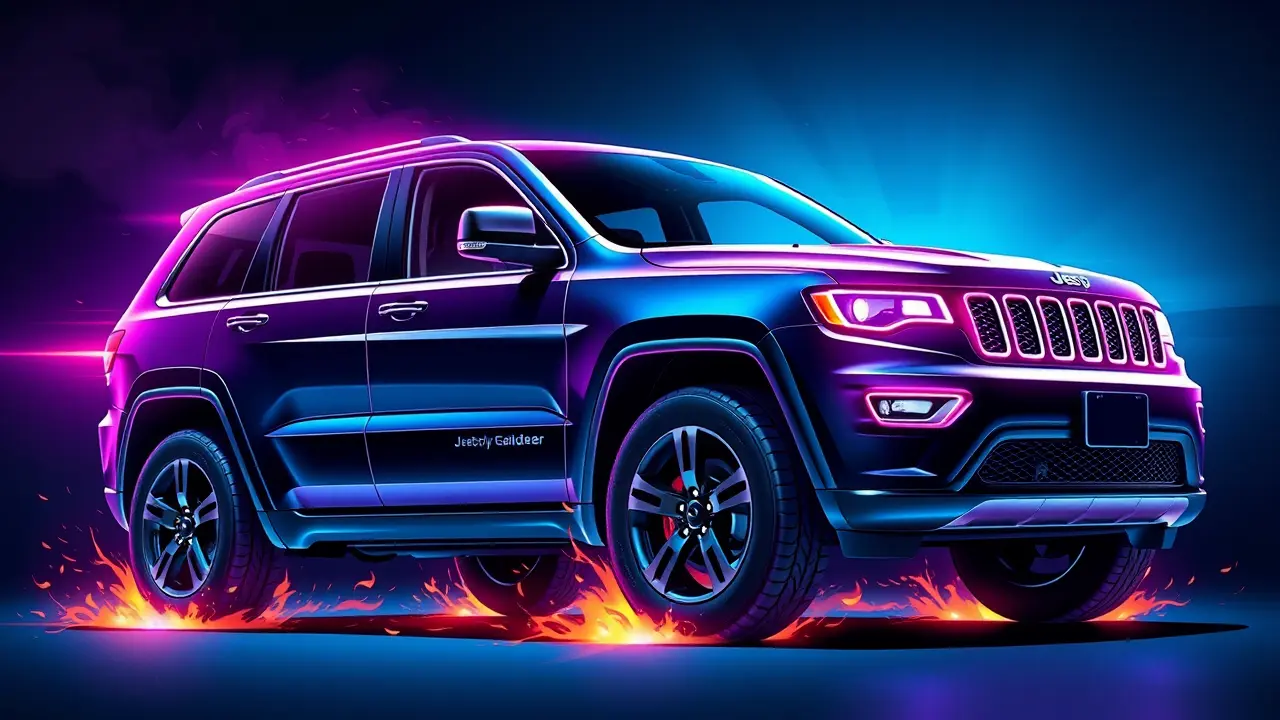
Otherauto & mobilityRegulations and Safety
Chrysler Recalls 320,000 Jeep Plug-In Hybrids Over Fire Risk
JO
John Parker
8 hours ago7 min read
Chrysler has initiated a critical recall of more than 320,000 Jeep plug-in hybrid vehicles following an urgent directive from U. S.traffic safety regulators, pinpointing a defective battery with a catastrophic failure mode that can culminate in a vehicle fire. The parent corporation, Netherlands-based automotive behemoth Stellantis, is actively grappling with 19 documented incident reports and at least one confirmed injury directly linked to this perilous flaw, signaling a rapidly escalating safety crisis that demands immediate and decisive action.The recall encompasses a massive fleet of 228,221 Jeep Wranglers from model years 2020 through 2025, alongside 91,844 Jeep Grand Cherokees spanning model years 2022 to 2026, with federal authorities issuing a stark, non-negotiable advisory for all owners to immediately park these vehicles outdoors and at a significant distance from any structures—including homes and garages—until a definitive engineering remedy is formally identified and deployed. In a parallel directive that underscores the severity of the electrical fault, the National Highway Traffic Safety Administration has explicitly instructed owners to cease all charging activities for these plug-in hybrids, effectively grounding the vehicles and nullifying their primary electric functionality due to the unacceptably high risk of thermal runaway and subsequent combustion.Interim notification letters are slated for mass mailing to registered owners by December 2, 2025, a procedural step that will be followed by a subsequent communication wave once the final repair protocol—which is still under intensive development and testing by Chrysler engineers in coordination with federal safety officials—is officially validated and ready for nationwide implementation. The recall, formally designated under the identifier 68C, provides a direct customer service hotline at 800-853-1403, while the affected Vehicle Identification Numbers will become publicly searchable on the NHTSA's official website starting November 6, 2025, a crucial tool for owners to verify their vehicle's inclusion in this sweeping safety campaign.Critically, the NHTSA has emphasized that vehicles previously subjected to earlier recalls for analogous battery-related issues will require this new, comprehensive remedy, indicating that prior corrective actions were either insufficient or failed to address the root cause of the battery pack's vulnerability. The problematic high-voltage battery systems were supplied by Samsung SDI America, a key subsidiary of the South Korean electronics giant, headquartered in Auburn Hills, Michigan, raising significant questions about supply chain quality control and the intricate liability dynamics between global automakers and their battery technology partners.This recall emerges against a backdrop of intensifying regulatory scrutiny over lithium-ion battery safety across the entire automotive industry, particularly for plug-in electric and hybrid models, where similar thermal incidents have previously plagued other manufacturers, prompting a sector-wide reassessment of battery management system integrity, cell manufacturing tolerances, and long-term durability under real-world operating conditions. The financial and reputational ramifications for Stellantis are potentially monumental, coming at a time when the auto group is aggressively pivoting its flagship Jeep brand toward an electrified future, a strategic bet now jeopardized by this large-scale safety failure that could erode consumer confidence in both the Wrangler 4xe and Grand Cherokee 4xe models, which have been marketed as rugged, capable, and technologically advanced vehicles.Automotive safety experts are closely monitoring the situation, noting that the prescribed 'park outside' directive is among the most severe precautions regulators can mandate, reserved exclusively for defects where the fire risk is deemed substantial even when the vehicle is completely stationary and powered down, a scenario that suggests a fundamental flaw in the battery's passive safety architecture or its internal monitoring systems. The resolution timeline remains uncertain, as engineering a permanent fix for such a complex, safety-critical component requires extensive failure analysis, rigorous validation testing, and the logistical orchestration of replacement parts production and technician training across thousands of dealerships, a multi-phase process that could stretch for many months, leaving a significant portion of Jeep's loyal customer base in a state of limbo with vehicles they cannot safely use or charge.
#Chrysler
#Jeep
#recall
#plug-in hybrid
#battery fire
#safety
#Stellantis
#featured
Stay Informed. Act Smarter.
Get weekly highlights, major headlines, and expert insights — then put your knowledge to work in our live prediction markets.
© 2025 Outpoll Service LTD. All rights reserved.